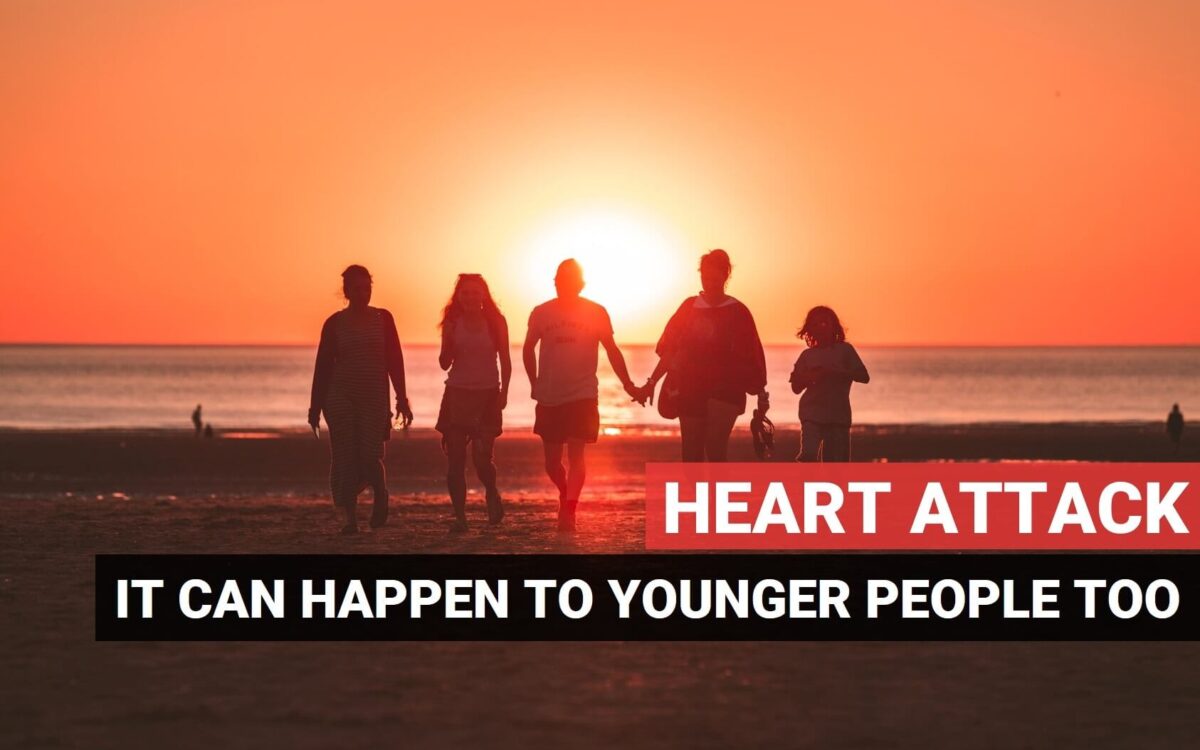Overview
Heart attack doesn’t happen just to older adults. It is happening to younger adults too. This is partly because the conditions that lead to heart attack are happening at younger ages. However, your risk increases as you get older.
To the surprise scientific evidence and various studies show that the prevalence of heart attacks among younger people has been increasing over the last few decades.
A heart attack usually occurs when a blood clot blocks blood flow to the heart. Without blood, tissue loses oxygen and dies. The longer the heart goes without enough blood and oxygen, the greater the damage to the heart muscle. Hence heart attacks are medical emergencies and early treatment is critical.
Age increases your risk of heart attack
As your age increases, so does your risk of heart attack. This is caused due to physical changes in your cardiovascular system and your heart muscle. There are several other reasons that your heart changes as you age:
- Over time, fatty deposits can build up on the walls of your arteries.
- As you age, your arteries can become stiffer and harder.
- The walls of your heart might grow thicker as you get older.
- Your heart valves may work less effectively.
- Your heart’s electrical impulses may also change as you age.
- Sensitivity to sodium may increase and that can raise your blood pressure.
Younger people can have heart attack too
Heart attacks and the conditions that lead to it can happen at any age. High rates of obesity and high blood pressure among younger people (ages 35–64) are putting them at risk for heart attacks earlier in life.
Smoking and substance abuse are greater among young people and is linked to an increased risk of heart attack. However, they aren’t the sole cause or earlier heart attacks. It’s likely a combination of several other factors such as:
- Obesity
- Prediabetes
- Dyslipidemia, or atypical levels of lipids or fats in the blood, such as LDL cholesterol and triglycerides
There are some risk factors that can not be changed like family history, there are many other risk factors that you do have control over. These include:
- smoking
- having high cholesterol
- having high blood pressure
- lack of exercise
- being overweight or having obesity
- having high stress levels
- an unhealthy diet
- heavy alcohol consumption
- having poor sleep quality or sleep apnea
The bottom line
Although you can have a heart attack at any age, your heart attack risk does increase as you get older. Having a family history of heart disease and being male also increase your risk.
As said many other risk factors are within your control. It just depends on your lifestyle choices.
If you have high blood pressure, high cholesterol, diabetes, or other conditions that can increase your risk of a heart attack, talk with your cardiologist about the best course of treatment to help lower your risk of a heart attack.
Source/s:
Banner: www.unsplash.com













